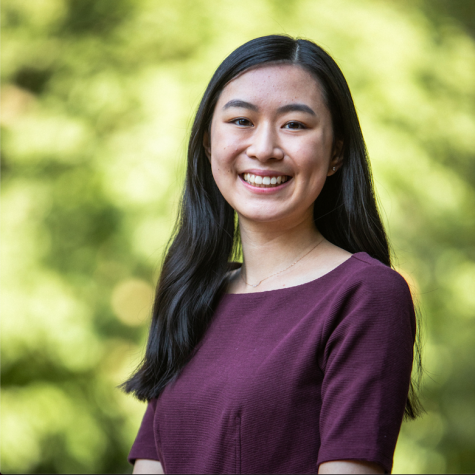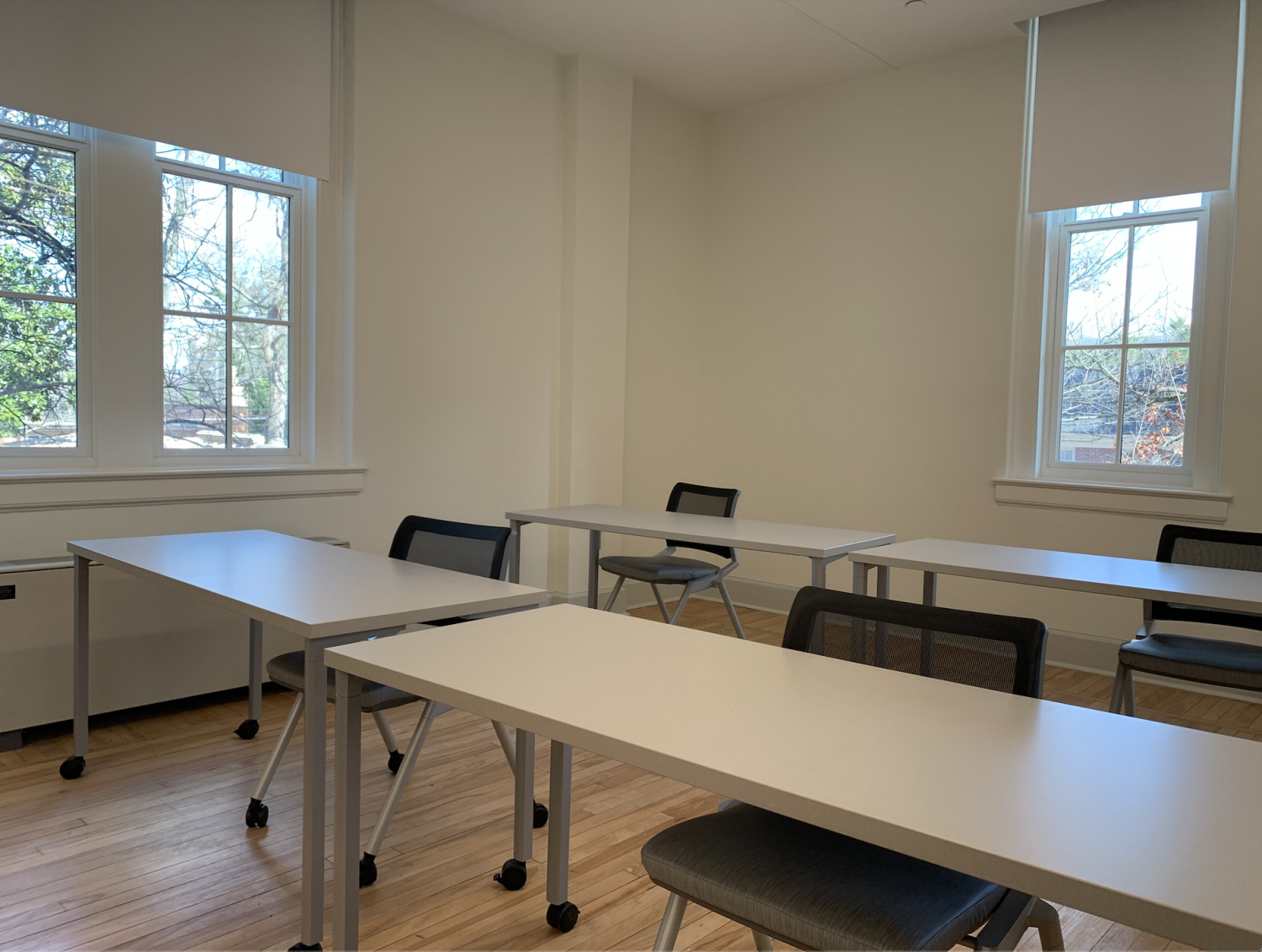 Students stream pass each other in between classes, once again fighting for sidewalk space and to be the first in line during lunchtime. But instead of waiting elbow to elbow for a Rand bowl, or stopping by the soda machines to pour themselves a drink, students stand six feet apart on dotted markers and are handed canned beverages by dining staff.
Students stream pass each other in between classes, once again fighting for sidewalk space and to be the first in line during lunchtime. But instead of waiting elbow to elbow for a Rand bowl, or stopping by the soda machines to pour themselves a drink, students stand six feet apart on dotted markers and are handed canned beverages by dining staff.
While it’s been almost a year since these “new normal” precautions began, this semester contains much more in-person interaction than the last. With many courses in-person only, and limited remote options reserved for those abroad or with extenuating circumstances, campus is bubbling with energy after an extended two month break. I was surprised to run into several friends on campus who I knew were studying remotely last semester, including a few international students. This Spring, it seems like most of the Vanderbilt community is finally back in Nashville.
But, with continued safety measures in place, in-person interactions still feel different and take some getting used to. With peers’ and professors’ faces covered with masks, it’s much harder to gauge reactions to a comment you make in class, or match a name to a face. In one of my courses, my professor dedicated the first class to student introductions. To assist us in introducing ourselves, he displayed our outdated student ID photos we submitted our senior year of high school. Besides eliciting embarrassed chuckles, it was a helpful way for us to see each other’s full faces while having to introduce ourselves with our masks on.
Because humans rely heavily on facial expressions to communicate with each other, wearing masks in the classroom also introduces a new roadblock to communication that can hinder classroom learning. Whether it’s signally empathy, a desire to speak or agreement with what another peer is saying, being able to see each other’s facial expressions is a valuable part of learning. Left only with a few expressive options, such as the ability to nod in agreement or raise our eyebrows in surprise, the lack of facial cues detracts from students’ ability to learn from each other. Having to stare at blank faces can also decrease students’ comfortability to speak up in class. Particularly in discussion heavy courses where students often share personal experiences and stories, being able to gauge others’ reactions and receive nonverbal validation or support is important.
But, even with masks and plexiglass screens, these times provide us with new ways to connect with and learn from each other. Some people’s masks express something about them, such as their favorite color, patterns and on-campus organization affiliations. I’ve also noticed that some professors are making greater use of hand gestures and signals, such as a thumbs up sign, to express their enthusiasm and signal that they’re trying to elicit feedback from students.
In addition, the host of challenges and tragedies many have experienced due to COVID-19 provide community members with another reason to reach out to each other in ways we wouldn’t in “normal” times. I’ve noticed how some professors have opened up more, taking time to share tips or hobbies they’ve adopted to cope with lockdowns. There’s also more of a general assumption that students may not be “okay,” and have a lot potentially going on in their lives that can interfere with their learning. While most professors have always had a section in their syllabus about encouraging students to reach out for help, now, more professors are taking the initiative to connect with students instead of waiting for students to come to them.
Bonded by this shared challenge of pursuing a higher education through a global pandemic, Vanderbilt community members have a unique opportunity to explore new ways to learn from each other. Whether it’s hearing how peers from different backgrounds, states or countries have been affected by COVID-19, or learning how to empathize with others who have lost loved ones during this time, we all have opportunities to grow closer to one another. We have increased opportunities to listen to, support each other and strive to lift each other up. While there are challenges to this new educational experience, there are ways we can not only get through this time, but thrive.




